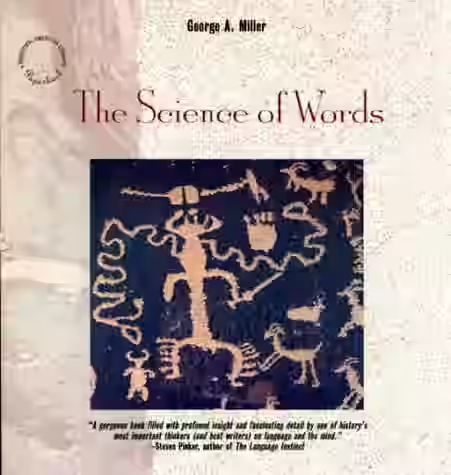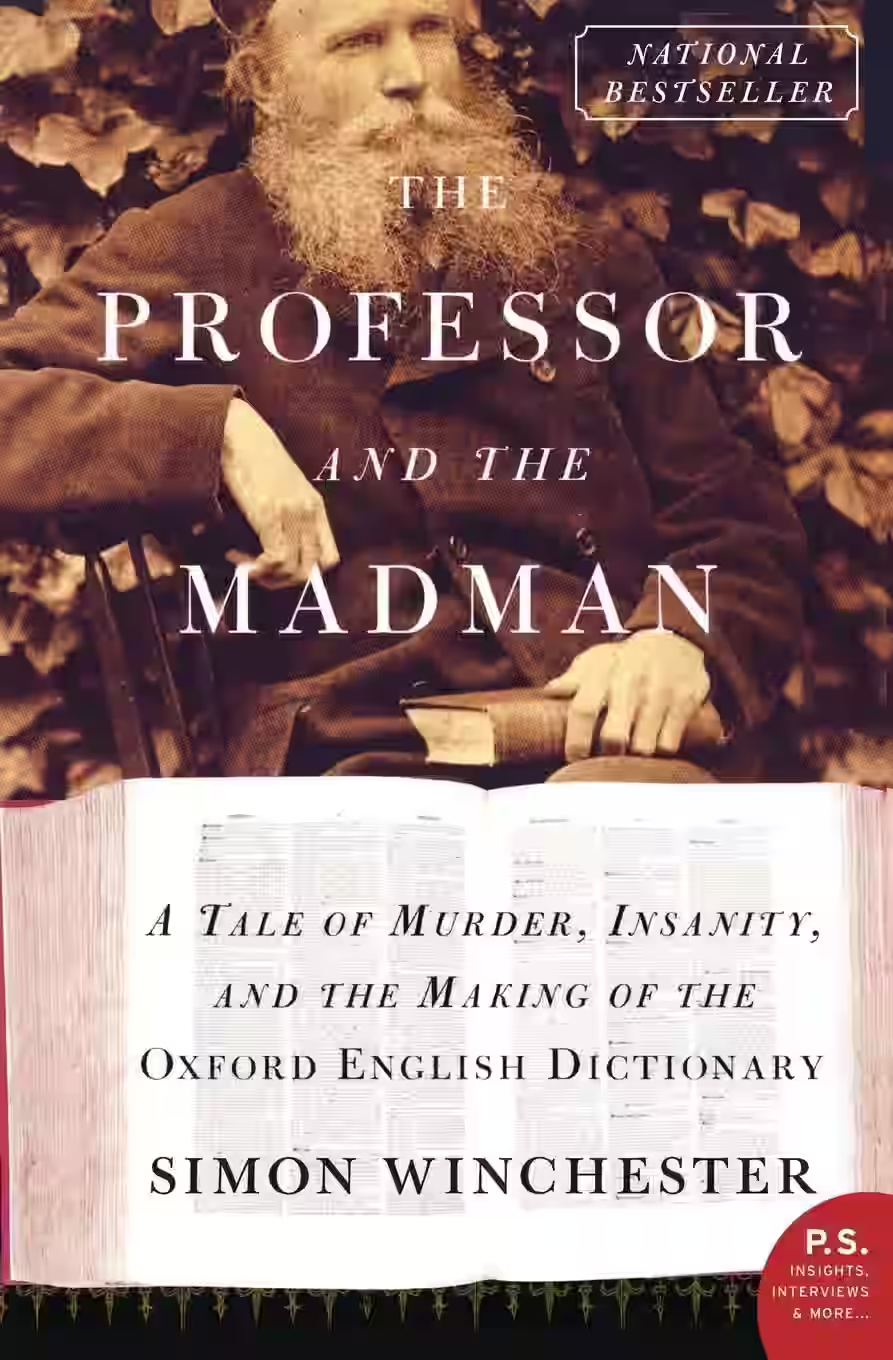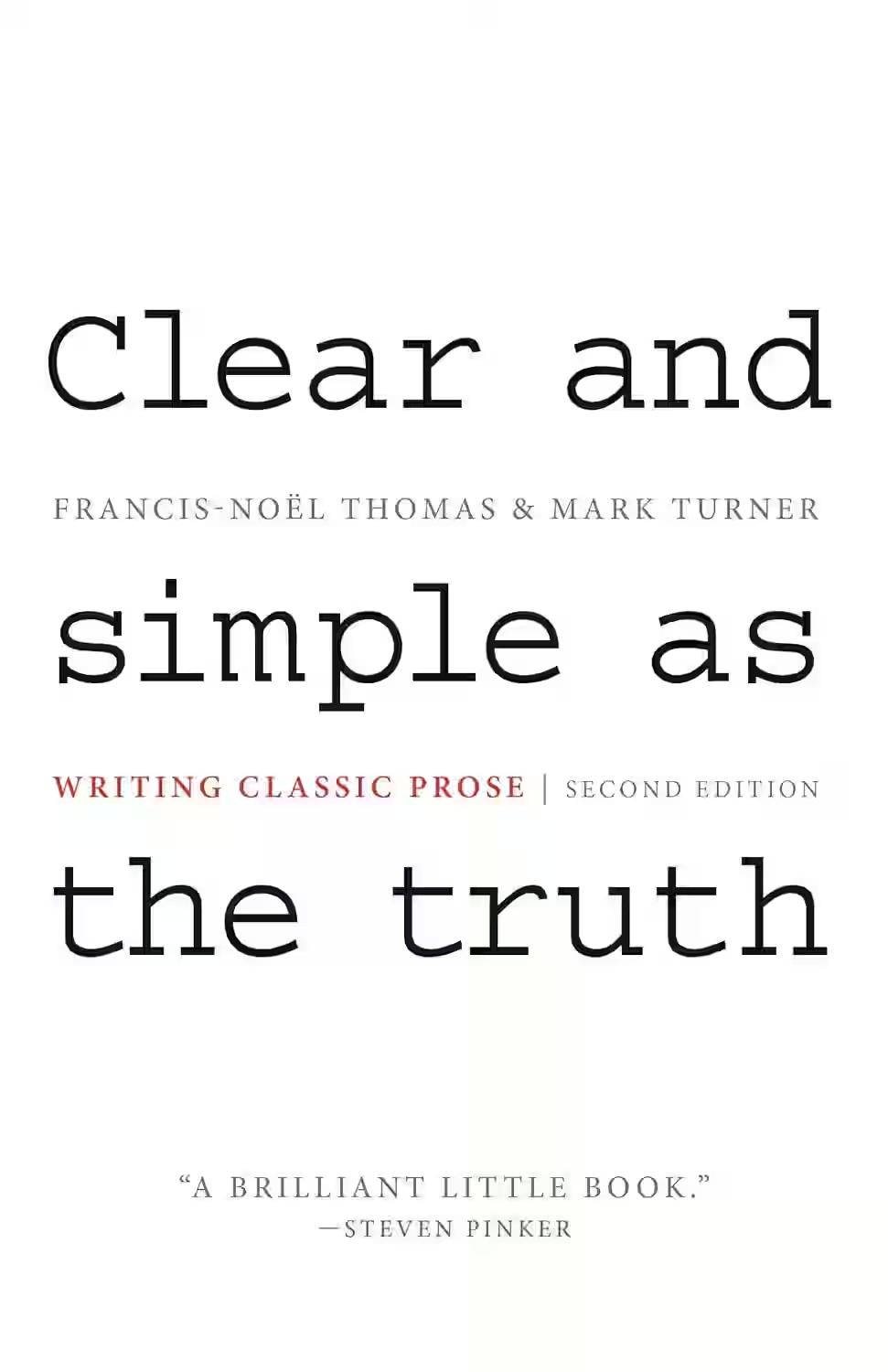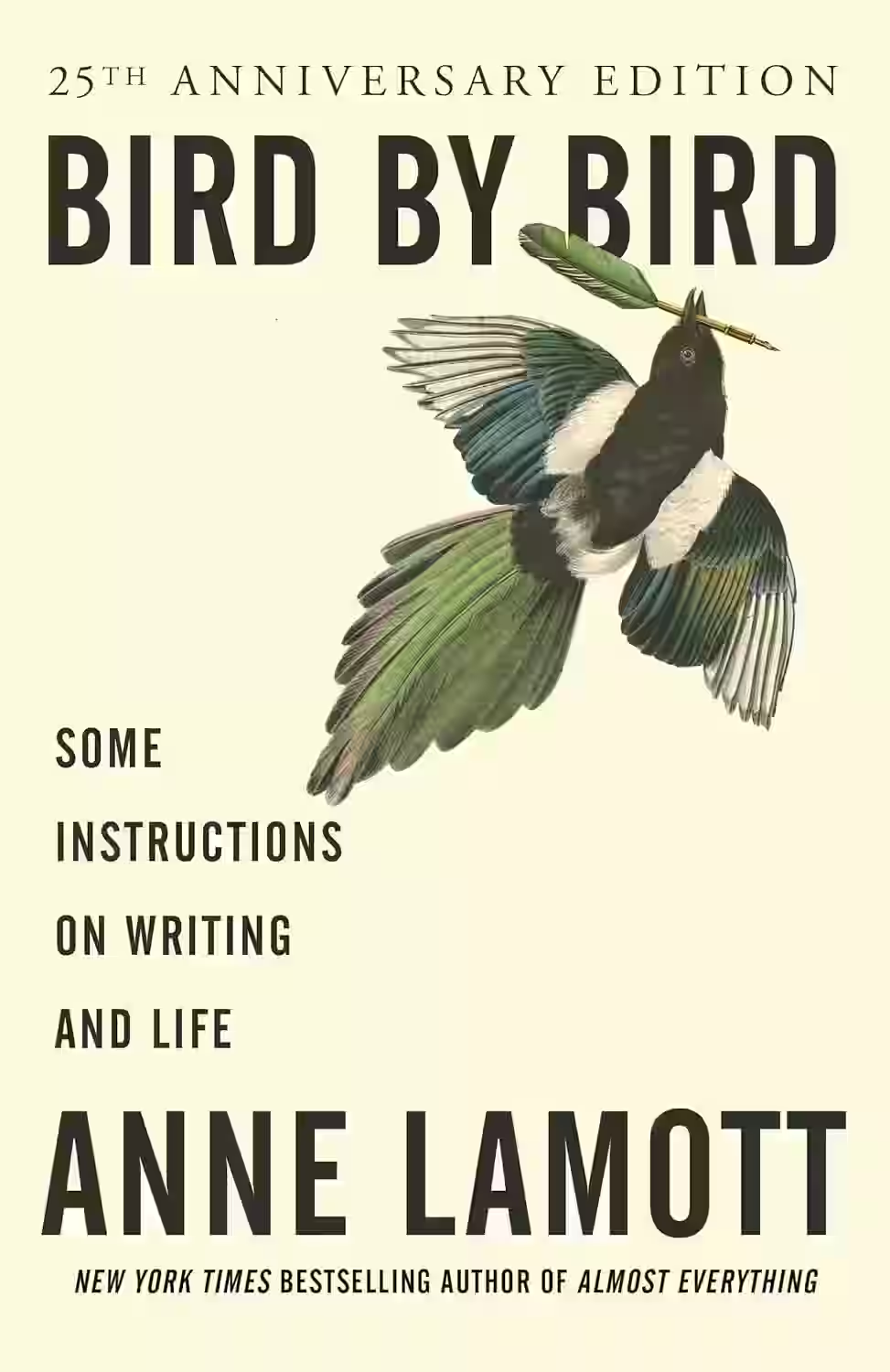Language
The Language genre explores how humans communicate through spoken, written, and symbolic systems

The Science of Words
In The Science of Words, cognitive psychologist George A. Miller offers an accessible look into how language works—from meaning and memory to syntax and speech. Drawing on decades of research in psycholinguistics, he explores how people learn, process, and produce words. Miller explains the relationships between language and thought, covering topics like categorization, semantic networks, and ambiguity. The book bridges linguistics and psychology, showing how language reflects and shapes the human mind. It's a foundational work for understanding language acquisition, cognitive science, and the nature of communication. Clear and engaging, it’s ideal for students and curious readers alike.

The Professor and the Madman
In 'The Professor and the Madman' by Simon Winchester, the author delves into the intriguing story behind the creation of the Oxford English Dictionary. The book follows the relationship between Professor James Murray and Dr. William Minor, a convicted murderer who contributed thousands of words to the dictionary while institutionalized. Winchester skillfully weaves together themes of language, madness, and humanity, offering a compelling narrative of two unlikely collaborators. Through meticulous research and vivid storytelling, he captures the essence of dedication, obsession, and the power of words. This non-fiction work engages readers with its historical richness and profound exploration of the complexities of human nature.

Clear and Simple as the Truth
by Francis-Noël Thomas, Mark Turner
This book analyzes the “classic style” of writing—a mode that presents truth as if it were self-evident, discovered through observation, and conveyed with clarity and grace. The authors contrast this with other styles (such as practical or bureaucratic writing), offering examples and analysis that reveal how style shapes thought. More than a guide to writing, the book is a meditation on communication, knowledge, and elegance. It’s a favorite among writers, editors, and thinkers who value prose that is persuasive not through ornament but through transparency. It’s especially relevant for anyone striving to write with clarity and precision.

Bird by Bird: Some Instructions on Writing and Life
by Anne Lamott
Part writing guide, part memoir, Bird by Bird offers a heartfelt, humorous take on the creative process. Anne Lamott shares practical tips—like writing “shitty first drafts”—while delving into the emotional ups and downs of being a writer. Her advice is grounded in honesty, compassion, and experience, making it resonate with beginners and seasoned writers alike. Beyond writing, the book explores themes like perfectionism, self-doubt, and faith. Lamott’s voice is witty and warm, encouraging readers to embrace vulnerability and stay grounded through their work. It’s a beloved classic on both the craft of writing and the art of living.